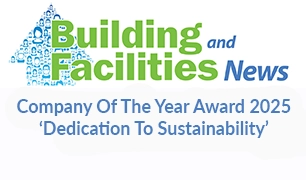COP29, the 29th Conference of the Parties to the United Nations Framework Convention on Climate Change, held in Baku, Azerbaijan, has concluded with a mix of progress and disappointment. While a significant breakthrough was achieved in climate finance, concerns remain about the adequacy of the pledges and the lack of concrete commitments to accelerate the phase-out of fossil fuels.
This event once again brought together world leaders, climate scientists, activists, and negotiators to address the urgent global challenge of climate change. As the world grapples with the increasing frequency and intensity of climate-related disasters, COP29 was regarded as a critical juncture in determining the future of our planet.
Despite global efforts, the world is still far off track to limit global warming to 1.5°C above pre-industrial levels, as outlined in the Paris Agreement. 2024 has been a record-breaking year for global temperatures, with several months surpassing the 1.5°C warming limit set by the Paris Agreement. This is a significant milestone, as it marks the first time global temperatures have consistently exceeded this threshold for an extended period.
While the Paris Agreement aims to limit global warming to “well below” 2°C, with an aspiration of 1.5°C, the 1.5°C limit is seen as a crucial threshold to avoid the most severe impacts of climate change. Exceeding this limit, even temporarily, highlights the urgency of reducing greenhouse gas emissions and accelerating climate action.
It’s important to note that the 1.5°C limit is a long-term target and exceeding it for a few months or even a year doesn’t mean that the Paris Agreement has been broken. However, it serves as a stark reminder of the rapid pace of climate change and the need for immediate and substantial action to mitigate its effects
To achieve this, countries needed to significantly enhance their Nationally Determined Contributions (NDCs) and implement more ambitious climate policies. Geopolitical tensions and conflicts however have hindered international cooperation on climate change. The ongoing geopolitical landscape complicates negotiations and undermines the collective effort to address the climate crisis. COP29 therefore needed to push for stronger commitments to accelerate the pace of decarbonisation.
COP29 fails to phase out fossil fuels
One of the conference’s key aims was to encourage countries to update and enhance their ambitions to decarbonise, setting more ambitious targets for emissions reductions. This requires a global effort to accelerate the phase-out of fossil fuels and promote renewable energy sources. On this key point, COP29 failed to deliver a clear and ambitious commitment. Instead, the focus remained on vague language about “transitioning away” from fossil fuels, leaving room for interpretation and potential delays, despite vocal calls for a rapid phase-out of fossil fuels.
COP29 Climate Finance Win?
The other pressing issue was the lack of adequate climate finance, particularly for developing countries. The $100 billion annual target for climate finance, promised by developed nations, had not been fully met. This shortfall hampers developing countries’ ability to adapt to climate change and transition to low-carbon economies. Addressing this funding gap, a landmark agreement was reached to triple annual climate finance for developing countries to $300 billion by 2035 a substantial increase from the previous goal.
The financial agreement went some way towards addressing concerns over the lack of ambition in attaining emissions reduction. Many countries have yet to significantly enhance their NDCs, which outline their climate action plans. The lack of ambition in these NDCs was seen as insufficient to limit global warming to 1.5 degrees Celsius, the target set by the Paris Agreement, however, questions persist about the specific sources of funding and how it will be distributed equitably.
Some countries and NGOs expressed disappointment over the perceived lack of ambition and inadequacy of the climate finance package. They argued that the $300 billion pledge is insufficient to address the scale of the climate crisis. However many developing countries welcomed the increased climate finance pledge as a step forward.
The issue of loss and damage, which refers to the irreversible impacts of climate change that cannot be adapted to, was a contentious topic in previous COPs. COP29 sought to establish a dedicated funding mechanism to address these losses and provide financial support to affected communities, making significant progress on the full operationalisation of the Fund, allowing it to disburse funding for the first time in 2025. An institutional framework for the Fund’s operations was also established with hosting and trustee arrangements from the World Bank. The Fund still requires significant, long-term financial resources to address the growing needs of vulnerable countries, and clear guidelines are needed to ensure that funds are allocated efficiently and effectively.
The Low carbon economy
The transition to a low-carbon economy must be just and equitable, ensuring no one is left behind. This requires careful planning and investment in social safety nets to protect workers and communities affected by the shift away from fossil fuels. COP29 aimed to prioritise a just transition and ensure that the benefits of climate action are shared widely.
While mitigation efforts have gained significant attention, adaptation to the impacts of climate change has been relatively neglected. Developing countries, particularly small island nations, are disproportionately affected by climate change and require substantial support to build resilience. Building resilience to climate change impacts is crucial for protecting lives and livelihoods. COP29 sought to focus on enhancing adaptation efforts, particularly in these vulnerable regions. This includes investments in climate-resilient infrastructure, early warning systems, and sustainable agriculture practices.
COP29 also sought to secure increased climate finance commitments from developed countries, particularly for adaptation loss and damage. This was seen as an important step towards helping developing countries implement climate action plans and build resilience to climate impacts. A key goal was to put the Loss and Damage Fund into true operation, ensuring it can effectively provide financial support to vulnerable countries affected by climate change. Although adaptation finance was discussed, specific commitments and funding mechanisms remained elusive. This is a critical issue for vulnerable countries facing the immediate impacts of climate change.
The conference also aimed to promote climate justice by addressing the historical responsibility of developed countries for climate change and ensuring that the benefits of climate action are shared equitably. On this point, concrete actions and commitments to address these issues were limited.
While COP29 did inherently foster greater international cooperation on climate change, encouraging countries to work together to address shared challenges, the efforts to strengthen multilateral institutions and promote technology transfer and capacity building also fell short of ambition. Despite the publication of annual progress reports, the implementation of these initiatives is complex, requiring strong coordination between different stakeholders, however, a lack of adequate funding for technology transfer and capacity-building initiatives hindered progress.
After years of negotiations, countries finalised the rules for carbon markets under Article 6 of the Paris Agreement, a progress which secured praise from environmental organisations and climate activists. This development aims to create a global framework for trading carbon credits and incentivise emissions reductions in developing countries.
COP29 and the challenges set for COP30
COP29 concluded then with a mix of progress and disappointment. While a significant breakthrough was achieved in climate finance, concerns remain about the adequacy of the pledges and the lack of concrete commitments to accelerate the phase-out of fossil fuels. Addressing climate change at a global level was always going to be a massive challenge, for many nations the easy part is well behind them, especially closing coal-fired power. As a result, decarbonisation at a national level is both more expensive and makes smaller incremental gains, making it an ever more difficult political sell. The vocal disappointment expressed over the lack of ambition and perceived inadequacy of the climate finance package, both key challenges COP29 aimed to resolve is most telling.
COP30, set to be hosted in Brazil, faces major challenges. Most notably ensuring that the $300 billion pledge is fully realised and distributed equitably among developing countries. More work is needed to provide adaptation finance to fund and support vulnerable countries in building resilience to climate impacts. Finally, international cooperation and national policies need to be further strengthened to accelerate the phase-out of fossil fuels, and robust mechanisms need to be implemented to track and verify climate action and finance flows. What is clear from the at-times chaotic COP29 is that the success of future climate negotiations will depend on the willingness of countries to cooperate, prioritise ambitious climate action, and translate commitments into concrete policies and investments.
Learn more about net zero and how addressing water heating in your commercial buildings can make a difference https://adveco.co/net-zero-water-heating/
















